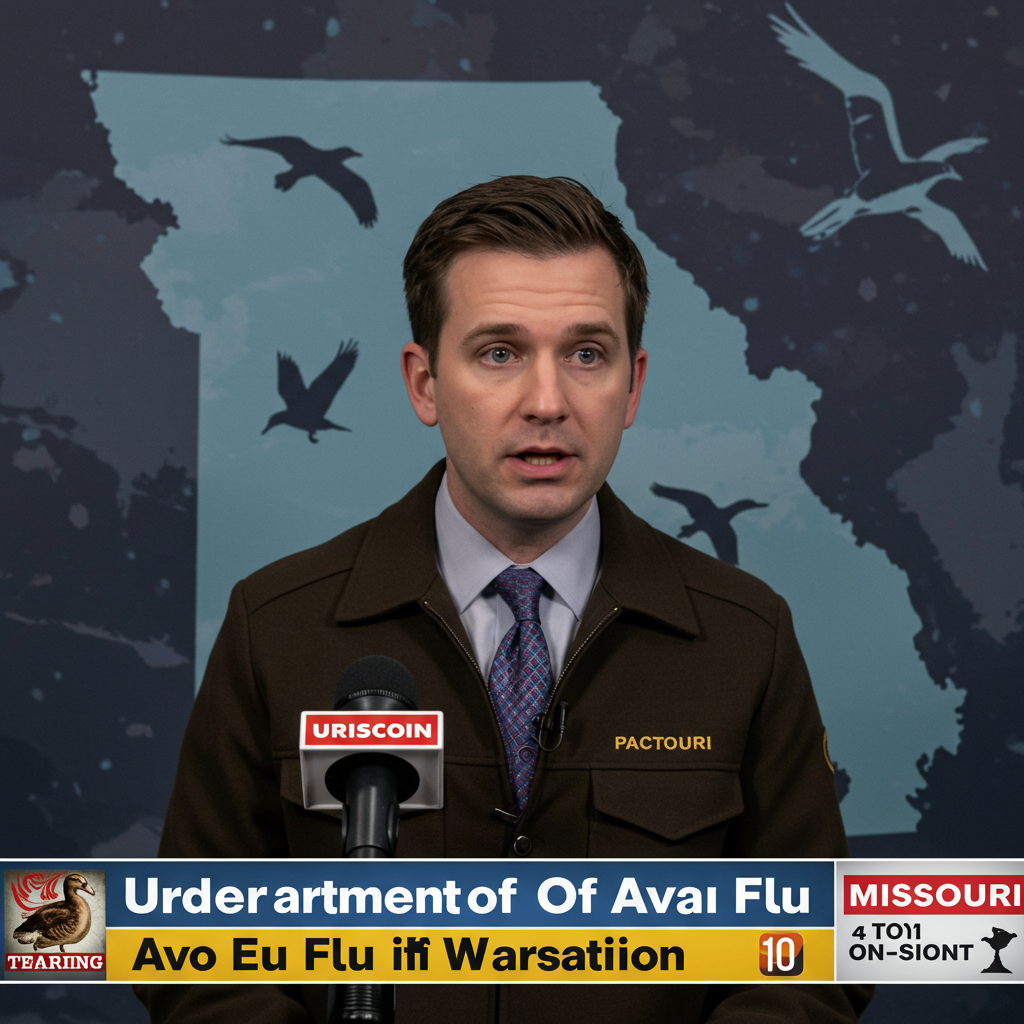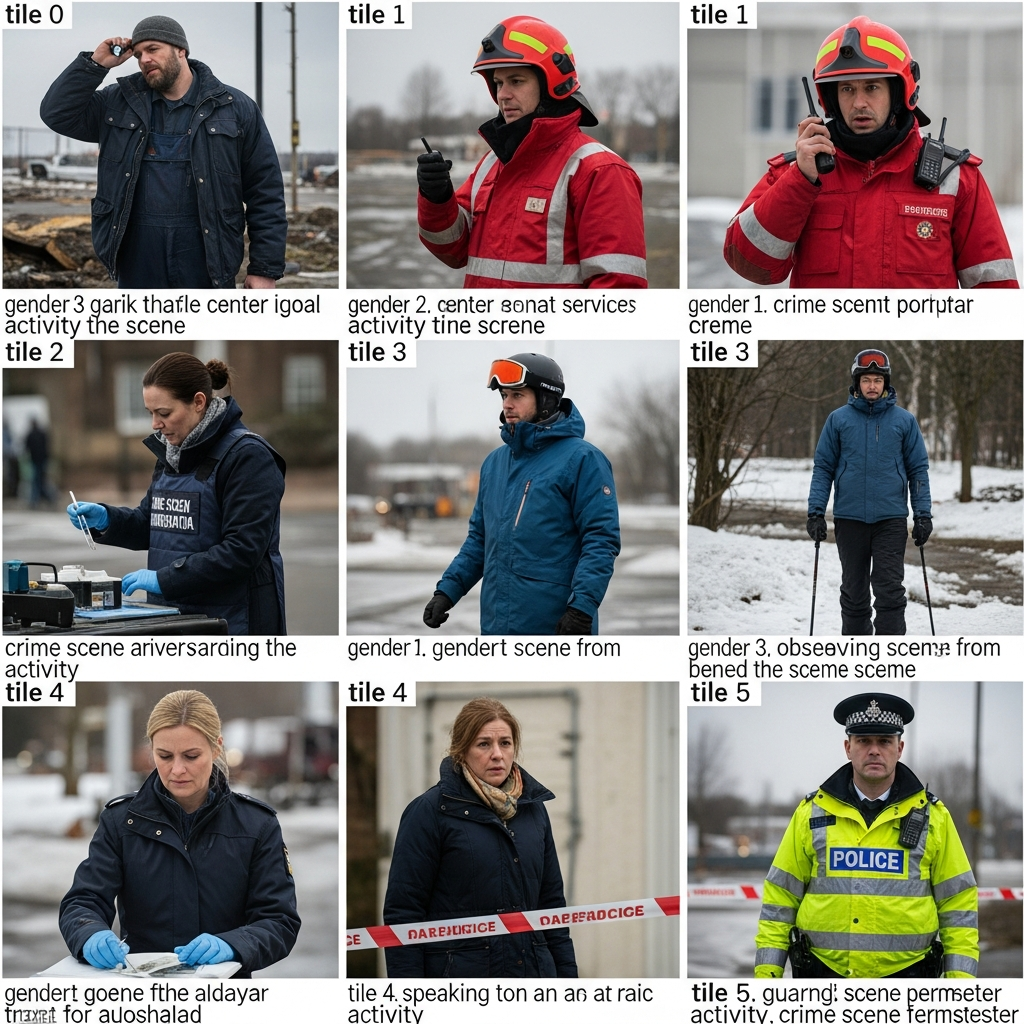An urgent alert has been issued by the Missouri Department of Conservation (MDC) regarding an ongoing outbreak of Highly Pathogenic Avian Influenza (HPAI), commonly known as “bird flu,” across the state. This critical public health and wildlife advisory urges Missouri residents to exercise extreme caution and follow specific guidelines to protect themselves, their pets, and local wildlife populations. With confirmed cases impacting waterfowl and raptors, understanding the risks and taking proactive measures is more important than ever. This comprehensive guide provides essential information and actionable advice from the MDC to navigate the current HPAI situation safely.
Understanding the Avian Influenza Threat in Missouri
Highly Pathogenic Avian Influenza (HPAI) is a severe and often fatal viral disease that primarily affects birds. The MDC is actively monitoring the situation in Missouri, responding to numerous reports of sick and deceased waterfowl, such as geese and ducks, along with various raptor species. Laboratory tests have unequivocally confirmed HPAI as the cause of these unfortunate incidents. This highly contagious virus poses a significant threat to avian wildlife, leading to widespread concern among conservationists and public health officials alike.
The primary mode of transmission for HPAI among birds is through direct contact with infected bodily fluids. This includes exposure to contaminated feces, saliva, or nasal discharges from sick birds. Given that waterfowl gather in large numbers, the potential for rapid spread within and between populations is high. Therefore, avoiding contact with potentially infected birds or their droppings is a crucial first step in prevention.
Recognizing Bird Flu Symptoms in Wildlife
Identifying the signs of HPAI in birds is vital for reporting potential cases and avoiding exposure. The MDC has outlined several key symptoms to look out for in sick birds. These indicators suggest the bird may be infected with avian influenza and should be avoided immediately.
Common symptoms of HPAI in affected birds include:
Tremors and Shaking: Involuntary muscle movements.
Head Tilting: An unnatural angle or persistent tilt of the head.
Lethargy and Weakness: A noticeable lack of energy or responsiveness.
Loss of Coordination: Difficulty moving or maintaining balance.
Inability to Fly or Walk Properly: Stumbling, flapping erratically, or being grounded.
Trouble Standing Upright: Repeatedly falling over or an inability to support their own weight.
If you observe any of these symptoms in wild birds, particularly waterfowl or raptors, it is imperative to keep a safe distance and follow reporting protocols rather than attempting to intervene.
Navigating the Risk to Humans and Pets
While HPAI is highly contagious among birds, the good news for Missourians is that the risk of human infection remains remarkably low. Human cases are considered rare and typically occur only after close, prolonged exposure to infected birds or highly contaminated environments. Sporadic human infections have been documented globally, but these instances are infrequent and usually linked to direct handling of sick or dead poultry, or prolonged unprotected contact.
Despite the low overall risk, exercising caution is still prudent. Children and pets should be kept away from wild birds, especially those appearing ill or found deceased. For pet owners, ensuring your animals do not come into contact with wildlife carcasses or droppings is a simple yet effective preventative measure. Limiting your pets’ exposure to areas where wild birds congregate can significantly reduce any potential, albeit small, risk.
MDC’s Crucial Guidance for the Public
The Missouri Department of Conservation has provided clear, actionable advice for the general public to minimize risks during this HPAI outbreak. Adhering to these guidelines is essential for safeguarding both human health and local wildlife. Your cooperation is critical in helping to control the spread of the virus.
The primary directive is straightforward: avoid all contact with dead or sick birds. If you encounter a bird exhibiting symptoms or find a deceased bird, do not touch it. Instead, maintain a safe distance and report your sighting.
For those situations where handling a dead bird becomes absolutely necessary, such as removing it from a pathway, the MDC strongly advises taking stringent precautions:
Wear Gloves: Use disposable gloves if available; otherwise, use thick, impermeable gloves.
Consider a Face Mask: A face mask can provide an additional layer of protection against airborne particles.
Thorough Hand Washing: After any contact, wash your hands thoroughly with soap and warm water for at least 20 seconds.
Essential Precautions for Missouri Hunters
Hunters play a unique and crucial role in monitoring wildlife populations and can also be at higher risk of exposure due to their activities. The MDC has issued specific, detailed precautions tailored for hunters to ensure their safety and prevent the further spread of HPAI. These guidelines are designed to allow hunters to continue their activities responsibly while mitigating risks.
Key precautions for hunters include:
Separate Processing Areas: Always field-dress harvested game birds or process them in an area completely separate from domestic poultry or other birds. This prevents cross-contamination.
Proper Carcass Disposal: Dispose of carcasses and any waste materials responsibly. These should be sealed securely in trash bags and placed in household trash for collection or taken to a permitted landfill. This measure is not only for human safety but also vital for protecting scavenger species, particularly bald eagles, which are highly susceptible to avian influenza and often consume infected carrion.
Clean and Dry Gear: Thoroughly clean and disinfect all hunting gear, including boats, waders, and decoys, between trips. Allow equipment to dry completely to prevent the inadvertent spread of the virus to new locations or water bodies.
Reporting Sick or Dead Birds (and What Not to Report)
Your vigilance and prompt reporting are invaluable to the MDC’s monitoring efforts. Knowing what to report, and what not to report, ensures that resources are directed effectively. The MDC has established a clear reporting process for specific types of birds.
If you observe dead geese, other waterfowl, raptors (like eagles, hawks, or owls), or any other large birds exhibiting symptoms or found deceased, please report your sighting to the MDC through their dedicated online portal: short.mdc.mo.gov/4KDD. Providing accurate location details is helpful for their response teams.
Crucially, the public is specifically instructed not to report songbirds. HPAI has not been detected in Missouri’s songbird populations, and these species are currently not considered a significant concern regarding the virus. Focusing reports on waterfowl and raptors allows the MDC to concentrate on the most affected species.
Staying Safe for Pet Owners
While the focus of HPAI is on wild bird populations, pet owners should also take simple, common-sense precautions. Your furry companions are naturally curious and might investigate sick or dead wildlife. Preventing this contact is key to minimizing any potential risk.
The main advice for pet owners is to keep your animals away from dead or dying wildlife. This means keeping dogs on leashes in areas where sick or dead birds might be present and supervising pets closely when outdoors. If your pet comes into contact with a sick or dead bird, contact your veterinarian for advice, especially if your pet shows any unusual symptoms.
When to Seek Medical Attention
Though human infections are rare, it is important to be aware of potential symptoms and know when to consult a healthcare professional. If you have had close exposure to sick or dead birds and subsequently develop any unusual symptoms, prompt medical attention is advisable.
Symptoms that warrant contacting a healthcare provider include:
Eye Redness: Also known as conjunctivitis.
Respiratory Problems: Such as a cough, shortness of breath, or difficulty breathing.
Fever: An elevated body temperature.
Always inform your doctor about any potential exposure to sick wildlife. Early communication helps healthcare providers make informed assessments and provide appropriate guidance.
Frequently Asked Questions
What is HPAI and why is MDC warning Missourians about it?
Highly Pathogenic Avian Influenza (HPAI), or “bird flu,” is a severe viral disease deadly to birds. The Missouri Department of Conservation (MDC) is warning Missourians because HPAI has been confirmed in waterfowl (like geese and ducks) and raptors across the state, posing a threat to wildlife and requiring public awareness. The warning provides critical guidance to prevent spread and protect public health.
How should I report sick or dead birds to the MDC in Missouri?
To report sick or dead waterfowl, raptors, or other large birds in Missouri, use the MDC’s dedicated online portal at short.mdc.mo.gov/4KDD. It’s important to provide accurate location details. Please note that the MDC specifically requests that you do not* report songbirds, as HPAI has not been detected in these populations in Missouri and they are not a current concern.
What are the most important safety precautions for families and hunters during the HPAI outbreak?
For families, the most important precaution is to avoid all contact with dead or sick birds and keep pets away from wildlife carcasses. If handling is unavoidable, wear gloves, consider a mask, and wash hands thoroughly. Hunters must field-dress game separately from domestic birds, properly dispose of carcasses in sealed trash bags to protect scavengers like bald eagles, and clean/dry all gear between outings to prevent viral spread.
Conclusion
The ongoing HPAI outbreak in Missouri necessitates vigilance and adherence to the guidelines provided by the Missouri Department of Conservation. While the risk to humans remains low, following precautions for avoiding contact with sick or dead birds, responsible pet management, and specific hunter protocols are crucial steps in protecting our communities and the state’s precious wildlife. By staying informed and acting responsibly, Missourians can play a vital role in mitigating the impact of this avian influenza event. Continue to monitor official MDC channels for the latest updates and advisories.




